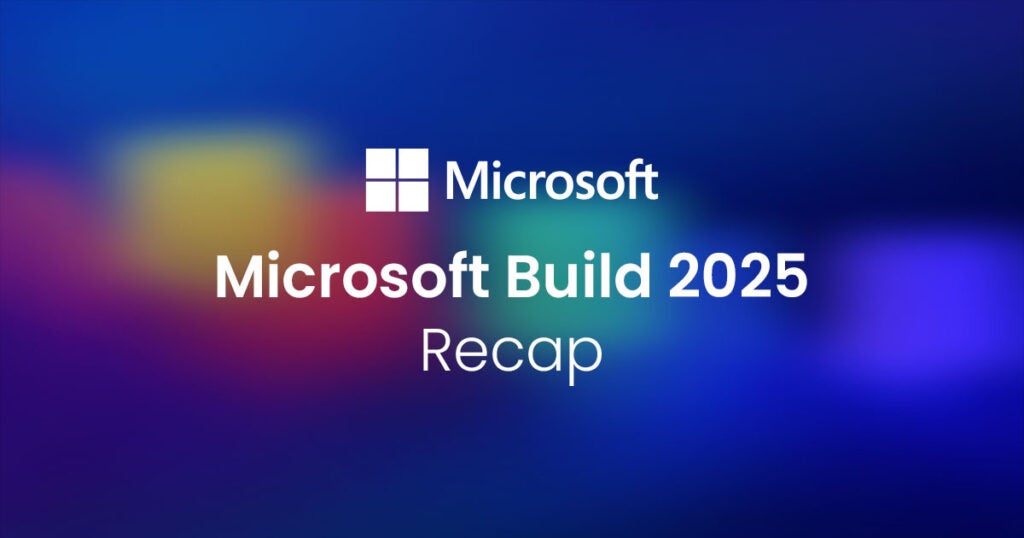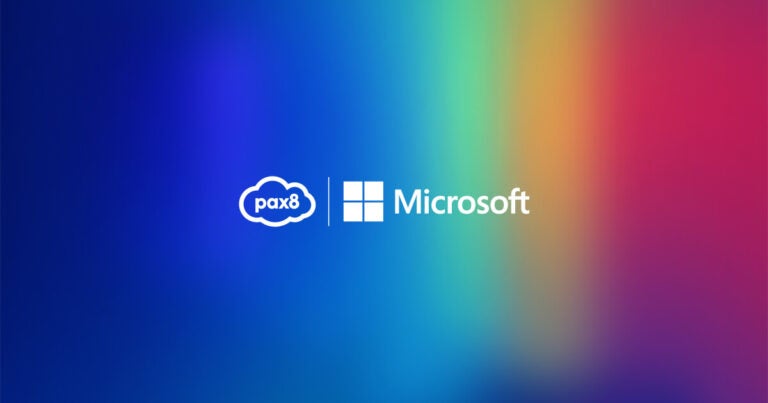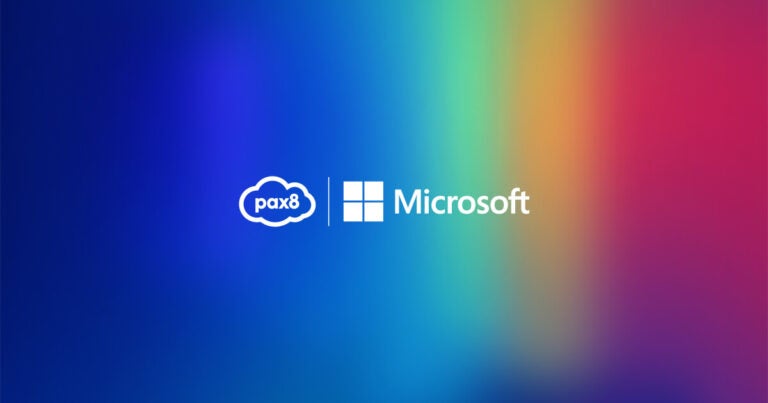Build 2025 Key Updates and Announcements
The key takeaway from Microsoft Build 2025? The AI agentic future is here — and is here to stay. That means that if businesses want to continue to optimize and grow, the way they operate will need to fundamentally change. And that’s why Microsoft is increasing access to agentic services, making it easier for developers to create more powerful tools. Let’s dive into some of the key announcements from Build 2025. For more information about what else was announced, check out the Microsoft Build 2025 Book of News.
Microsoft 365 Copilot and Copilot Studios – Innovating the Way We Work
Microsoft 365 Copilot and Copilot Studios are continuously improving their capabilities to not only design user interfaces for AI but also to leverage agents in automating and streamlining business processes effectively.
Microsoft 365 Copilot Tuning – Generally Available
This was big. Microsoft 365 Copilot Tuning now empowers organizations to customize AI models effortlessly using their own data, workflows and processes. With multi-agent orchestration, teams of agents collaborate seamlessly under human supervision, driving efficiency and innovation. This feature accelerates deployment, reduces costs and bolsters security, making cutting-edge AI accessible to businesses faster than ever. Organizations can train models and build precise, task-specific agents using their own knowledge — all without writing a single line of code. Microsoft 365 Copilot Tuning is available for organizations with 5,000 seats or more. There will be more updates that continue to roll out, so make sure you join our Microsoft Monthly Update webinars and read the monthly update blogs to stay up-to-date.
Key Copilot Studios Agent and Feature Updates
Copilot Studios is now able to drive seamless multi-agent orchestration, connecting agents across Copilot Studio, Azure and Fabric for efficient data exchange and task distribution. Developers can integrate their own models from Azure, gaining access to over 1,900 specialized and proprietary models. As this revolutionary agentic web redefines AI-driven software development, users can deploy agents to operate in various contexts.
Microsoft drove home this innovation with a live demo, where a Copilot agent tackled troubleshooting tasks, analyzed coding errors, developed new features and built an entire project — all from scratch. If you’ve been wanting a game-changing approach that streamlines workflows and accelerates productivity, this is it.
Copilot Wave 2 Spring Release – Generally Available and Coming Soon
Earlier this year, Microsoft announced that Researcher and Analyst were going to be available for Microsoft 365 Copilot. This is a first-of-its-kind feature, as Researcher and Analyst help create reasoning agents for work. In addition, the new Agent store makes finding, using and highlighting a range of agents much easier. This includes pre-built agents, as well as access to agents from partners that are pre-built into Microsoft 365 Copilot.
Copilot Search was also announced, which aids in providing you more context-aware and deeper searches from your organization’s data and applications.
Lastly, Copilot Notebooks provides the ability to pull together a variety of content from various sources, including notes, meetings and documents, streamlining the way in which Copilot accesses your graph data. Learn more about what else is included in Wave 2 here.
Azure and Foundry
There are some truly exciting Azure announcements this year that have us completely rethinking the way we approach Data and AI development. From groundbreaking services to innovative agent capabilities, Microsoft shared lots of new and updated services in the Azure world. Below we’ve summarized the top Azure announcements to keep you at the cutting edge of AI development.
Azure AI Foundry Agent Service – General Availability
Exciting news for AI developers! Microsoft has announced the general availability of the Azure AI Foundry Agent Service. This powerful service is designed to help professional developers create, deploy and scale enterprise-grade AI agents to automate complex business processes.
Key Features and Benefits:
- Multi-Agent Workflows: Developers can orchestrate multiple specialized agents to handle intricate tasks, boosting operational efficiency and accelerating decision-making.
- Open Protocols Support: The service supports Agent2Agent (A2A) and Model Context Protocol (MCP), ensuring interoperability across various agent frameworks and ecosystems.
- Simplified Development: Integration with knowledge sources like Microsoft Bing, SharePoint, Azure Databricks and Microsoft Fabric makes agent development straightforward.
- Unified Runtime: Combining Semantic Kernel and AutoGen, the service offers a consistent experience for building, testing and deploying AI agents.
- Robust AgentOps Capabilities: Features like tracing, evaluation and monitoring help developers validate and optimize agent behavior confidently.
- Healthcare Agent Orchestrator: Pre-configured agents and streamlined deployment tools are available to support multi-disciplinary healthcare data workflows, enhancing clinician efficiency.
With these capabilities, Azure AI Foundry Agent Service empowers organizations to build and manage a digital AI-powered workforce, transforming how businesses operate and innovate.
Azure Migrate Application and Code Assessment
When it comes to AI, it’s well understood that the quality of the output is only as good as the quality of the input. That’s why Microsoft has announced the general availability of the Azure Migrate application and code assessment tool. Designed to simplify the migration process by providing comprehensive assessments of applications and code, this dynamic tool ensures a smooth transition to the cloud.
Key Features and Benefits:
- Detailed Assessments: The tool offers in-depth analysis of applications and code, identifying potential issues and providing actionable recommendations for remediation.
- Compatibility Checks: It evaluates compatibility with Azure services, helping developers understand what changes might be needed for a successful migration.
- Performance Insights: The assessment tool provides insights into performance optimization, ensuring applications run efficiently in the Azure environment.
- Cost Estimation: It helps estimate the cost of running applications on Azure, allowing for better budgeting and financial planning.
- Streamlined Migration: By identifying and addressing potential issues upfront, the tool simplifies the migration process, reducing downtime and ensuring a smoother transition.
With these capabilities, Azure Migrate application and code assessment empowers organizations to confidently move their applications to the cloud, leveraging Azure’s robust infrastructure and services.
Microsoft’s AI Developments Will Keep Advancing the Way SMBs Operate
Microsoft Build 2025 highlighted the focus and continual development across their AI stack to not only boost personal productivity, business processes and AI frameworks within businesses, but also change the landscape of how SMBs operate. Keep in the know during our Microsoft Monthly Updates, as well as scheduling a call with your PSC.





